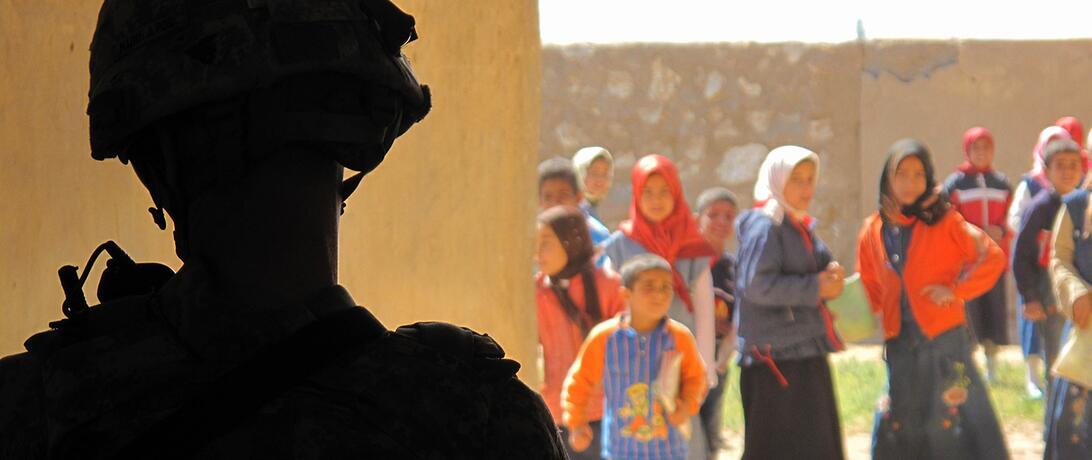
Restoring security in conflict-affected territories is the fundamental first step towards peacebuilding. But, according to Paul Collier, high degrees of military spending are actually counter-productive to achieving peace and are associated with a heightened risk of war renewal.
As Iraqi and international coalition forces announce each victory over ISIS in its previous strongholds in Iraq, a question naturally arises next: what are the essential components of building lasting and sustainable peace in these war-ravaged territories?
For many years, increasing the security capacity in conflict-affected areas has been considered the panacea of post-war peacebuilding. From Iraq to Afghanistan, military capacity-building and investment in military solutions have been used by the United States and others to achieve peacebuilding goals. But military-driven counterinsurgency efforts largely failed in both contexts, giving rise to the ISIS threat today.
Restoring security in conflict-affected territories is the fundamental first step towards peacebuilding. But, according to Paul Collier, high degrees of military spending are actually counter-productive to achieving peace and are associated with a heightened risk of war renewal.
In a new book, Governance for Peace, David Cortright, Conor Seyle, and Kristen Wall explain that government spending after a war can signal a state’s intentions and priorities to the population:
“States that prioritize military expenditures in the wake of a peace settlement are inadvertently signaling an intention to prepare for war and perhaps renege on negotiated agreements.”
Other types of government spending can better signal peacebuilding priorities. Investments in education, infrastructure, and healthcare help legitimize a government by showing a commitment to socioeconomic welfare, peaceful development, and growth. In addition, Cortright, Seyle, and Wall write that
“spending more on social development rather than the military helps to address socioeconomic grievances and may ameliorate conditions that lead to internal armed conflict.”
Minimizing the risk of war recurrence is thus tied not just to security, but also to providing social services to the conflict-affected population.
How does Iraq stack up against the goals of security and social service provision?
Security is not yet fully provided by the Iraqi state. Most liberated areas are controlled by paramilitary groups and criminal networks. An array of paramilitary groups function under the umbrella of the Popular Mobilization Force (PMF)—an organization that formed in 2014 following the collapse of the Iraqi army and the ISIS takeover of Mosul. The PMF is technically a part of government forces as of 2016, but in reality it remains an independent organization parallel to the Iraqi army.
The Iraqi government also does not control service provision in the liberated areas. Failure of the government to provide services allowed ISIS to step up their service provision in Mosul in 2014 in the first place. An estimated 30 armed groups are starting to provide services to the population, including electricity and water. In the meantime, the current capacity of the government to provide services in these areas remains extremely limited.
The government is hardly present in conflict-affected areas in terms of both security and services provision; it does not even have a comprehensive peacebuilding plan for governance in northern Iraq that would address these shortcomings. The ability of the Baghdad government and international allies to devise and execute a plan that establishes security and starts service-provision programs in conflict-affected areas will be paramount to achieving long-term peace and non-recurrence of war. Without these essential components of a legitimate state, war renewal is very likely.
It might seem that a task as complex as peacebuilding cannot be reduced to just security and social services. And that is true. The provision of security and social services goes hand in hand with other principles of good governance in determining post-war outcomes. But without these two elements, peacebuilding faces a very rough road to success. For a truly sustainable peace, governance also must
Article Details
Published
Topic
Program
Content Type
Opinion & Insights